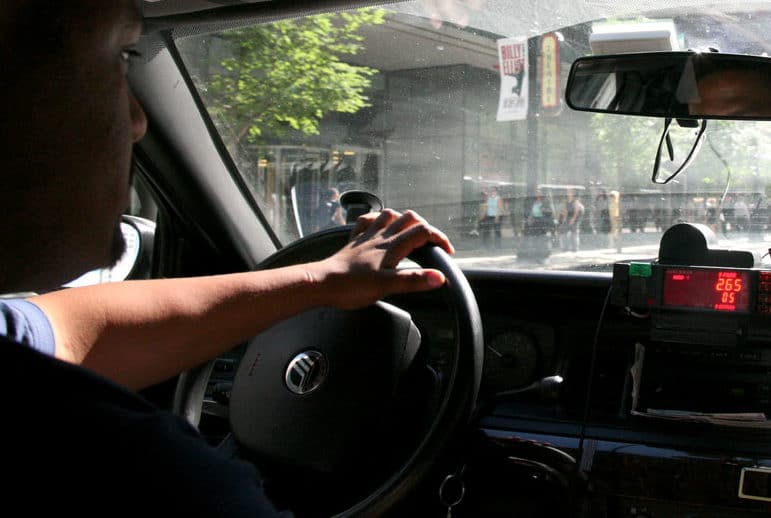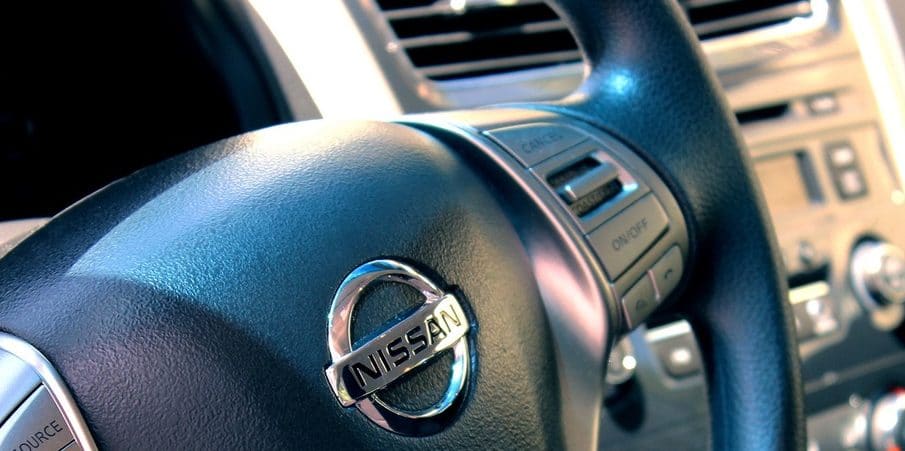
How to Start a Driving School in IL: A Step-by-Step Guide

Here you’ll learn everything you need to start your Driving School in Illinois
With great wisdom, Illinois has placed the rules governing driving schools with those for obtaining driver’s licenses–all under the Secretary of State. The State therefore makes it very easy to find the steps anyone looking to start a driving school in the state to get going quickly.
Illinois public schools are required to offer driver’s education, and most teens will take those courses. Schools are not necessarily required to provide a second chance if a student fails, and many parents may prefer that their teens go to a commercial driving school.
In addition, fifty hours of behind-the-wheel driving is required before an under-18 new driver may attempt the road test, and driving schools can provide solid training for some or all of that required time.
How to open your driving school in Illinois
- When you apply for a driving school license, you should have everything ready to go—vehicles, office, and classroom.
- Your location, facilities, and classroom are subject to certain size requirements.
- Your vehicles must have dual brakes, and be inspected and registered.
- You must keep student instruction records for three years, and may use written or prepared contracts.
- Public schools in Illinois must offer driver’s education, but you may provide it for teens also—you must provide 30-hours of in-class instruction, 6 hours of behind-the-wheel driving, and 6 hours of observation time.
- Illinois has very clear but rigid requirements to be a driving instructor in the state.
- Schools offering training for a commercial driver’s license generally need to meet the requirements for regular driving schools, but they must also have at least a 27,000 square foot vehicle training area.
- CDL training requires at least 160 hours of classroom and behind-the-wheel training.
- The Secretary of State also provides registration forms and information for business filings.
Driving School Information Summary
Before you open your doors, you need to make sure that you are in compliance with your state’s requirements.
Each state’s regulations for driving schools and driving instructors vary. In this section, we’ll outline the key regulations from the state, as well as include links to any relevant state agencies. These links don’t apply to general business requirements—we cover that below. This section is specific to driving schools in Illinois.
All driving schools in Illinois must be licensed in order to provide driver training for adults. In order to provide driver training to teens, or candidates for a CDL, you must have the appropriate accreditations–all obtainable through the Secretary of State.
Driving School License
In order to obtain a license to operate a driving school, you should have your program and facilities ready to go. That means you will have to make sure that
- You have a vehicle ready to provide driver training/instruction which is owned or leased by the school, registered with the Secretary of State, and is properly inspected and ensured.
- At least one driving instructor is associated with the school–either as an owner/operator or employee; the instructor must be licensed by the State of Illinois.
- The school’s office and classroom meet the required standards.
- All owners pass a criminal background check.
An individual may be affiliated with one and only one driving school license. No applicant for a license may be an employee of the Secretary of State, nor may any owner or applicant be an administrator and/or teacher of a State-approved high school driver education program.
You will need to complete the following forms.
- Application for Driving School License.
- Personal History Schedules for all applicants.
- Motor Vehicle Fleet inspection forms.
- Insurance Certificates covering all Driving School vehicles.
In addition you will need to file a surety bond with the state. The amount of the bond varies depending upon the programs you offer:
- Adult driving School $10,000
- Motorcycle School $10,000
- Teen Accredited School $40,000
- CDL Accredited School $40,000
- Accredited with 3 or more branches $50,000 for either type of accreditation
- Combined Teen/CDL accreditation $60,000
- Combined with 3 or more branches $70,000
The Secretary of State provides a checklist for the steps you need to take to open a commercial driving school.
Location, Facilities, and Classroom
Your offices must be in areas zoned for commercial use, and have a working telephone. Your permanent sign must be visible from at least 100 feet away. The premises themselves must either be owned or leased by the driving school.
None of your facilities may be within 1500 feet of any building used by the Illinois Secretary of State–or any department or agency of that office–for the administration of any motor vehicle laws. You also may not advertise within 1500 feet of such a facility.
Your main office and each branch office must have at least 150 square feet of office space. You must post a permanent school sign, as well as the days and regular hours of operation. Your office may be in a building with other legal businesses and they have their own entrances.
Your school may not be in a trailer, residence, hotel room, rooming house, or apartment house, nor may you operate out of your home.
Your main and any branch offices must be open to the public for at least 8 hours per week. Those 8 hours must be on Monday – Friday between 7am and 5pm.
Your classroom needs to be fully equipped to provide instruction, including seats, writing surfaces, appropriate visual aids, chalkboards/whiteboards, textbooks, reference works, and fire extinquishes. Audio/visual equipment is at your discretion.
The classroom, which must be at least 300 square feet in size, must be located close to the office space. It needs to be adequately heated, lit, and ventilated.
Branch facilities must comply with the same rules.
Your facilities are subject to reasonable inspections. Cooperation is expected, and staff from the Secretary of State may examine any records, instructional aids, and other items in the office or classroom.
In addition, state representatives may make checks of vehicles being used for behind-the-wheel instruction. The representatives will present proper identification, and may ask to see both the student’s permit or license as well as the instructor’s license to teach driving instruction.
Vehicles
Your vehicles must have a dual braking device, as well as have passenger and driver side rear view mirrors. It must be owned or leased in the name of the driving school–lease agreements must be submitted to the Secretary of State Vehicle Services Department.
The vehicle must be listed in the school license application or supplemental application.
The vehicle must carry signage which states the name of the school in letters at least 2 inches high, visible from the front and rear of the vehicle. It must carry the Department’s insurance sticker until removed from service as a training vehicle.
Driving school vehicles must be inspected annually, and bear a current inspection sticker. If the vehicle is removed from service as a training vehicle, make sure the sticker is removed.
Records and Contracts
You must keep instruction records for all students at your Illinois driving school. If you keep the records electronically, you must also maintain a hard copy of the records. The department does not indicate how frequently records must be printed; we suggest that printing at the end of each day for that day’s students and filing immediately will be the best practice.
Each student’s record must contain the name of the school and the name of the student, as well as the student’s license/permit numbers). The record must also show the dates and types of instruction, the fees charged, the instructional content, and a notation of classroom or behind the wheel instruction.
Student records must be kept in the main office for 3 years after the student finishes instruction with the school. If a student is taught at a branch office, a copy must be maintained for at least six months before being transferred to the main office for the 3 year period.
When a student ends instruction, either because the contract is completed or for any other reason, the school should give the student a copy of their record.
You may use written or preprinted contracts, but they do not appear to be mandatory. If you do not use a written contract, you will have to file a statement that all oral contracts have complied–and will comply with–the requirements noted below. This statement must be filed with the license and license renewal applications. It seems like the best practice is to use written contracts.
If you do use a written contract, it must include the following information:
- The agreed-upon price per hour/lesson, and the terms of payment.
- An indication that it represents the agreement is the entire contract, and no verbal assurances are binding unless they’re in the contract.
- A statement of any extra charge to use the school’s vehicle for the road test.
- Clearly indicated whether behind-the-wheel instruction is private or group instruction, or both.
- The name and address of the school and student, and the number and type of all licenses held by the the student.
- A statement indicating that all disputes about the contract are to be directed to the Secretayr of State.
- The notation that any student attending an accredited teen program or CDL course must complete the entire course within 9 months of the first classroom session.
You may not state “No refund” in your contract. You may indicate that your do not refund all or part of tuition if the school is able to perform its part of the contract.
You may not guarantee that your students will receive a license, or that students failing will receive free lessons. You may indicate that there will be “no additional charge” for students who fail to pass the test.
The Driving School Curriculum in Illinois
Illinois mandates all of the curriculum topics for every driving school, both for the in-class as well as the behind-the-wheel portions of driver’s education. You are, of course, free to add information, but at the very least, you should be covering the following topics in class:
- Your licence to drive–the process to get and legal obligations of the driver’s license.
- Understanding the vehicle and basic maneuvers.
- Traffic safety laws, road signs, and highway markings.
- Laws of Nature and how they affect driving
- Driving strategies in the city and highway.
- Sharing the road with others.
- Road hazards and vehicle failures.
- Driver fitness and highway safety.
- Alcohol, drugs, and driving.
- Motor vehicle maintenance
The classroom portion of driver’s education for teens must also meet the following requirements:
- The class must last for 30 hours.
- You may provide no more than 2 hours per day per student.
- The maximum class size is 30 students, unless your classroom is over 350 square feet, which allows you to teach a maximum of 35 students.
- The course must be distributed evenly over four complete weeks with distinct start and end dates.
- Submit an enrollment form within 3 days of the third class session to the Secretary of State.
- Instruction is required on the dates and times stated on the form.
- No student may miss more than 4 classes without having to re-enroll.
The curriculum must be submitted to the Secretary of State before the course starts. Courses may be inspected for compliance, once every two months. Changing your curriculum requires a new application to the Secretary of State.
Tests must be given regularly to students, and 75% is the required passing average. You must you use a textbook, and audio-visual materials are supplemental to the instructor’s presentation. Outside reading is expected as is test preparation.
Supervised driving
A minimum of 6 hours of behind-the-wheel instruction and 6 hours of observation time is required of all students. While you may pick-up and drop-off students, the time to and from the driving school does not count towards the required time. The lessons must be distributed regularly over a minimum of two weeks.
Behind-the-wheel instruction must include demonstration and instruction in starting, stopping, turning, backing, parking, and steering.
Parents may opt out of observation time by adding additional behind-the-wheel time. One hour behind-the-wheel replaces three hours of observation. You must retain written parental permission to opt out of the observation time.
Driving Instructor in Illinois
To become a certified driving instructor in Illinois, you must meet the following requirements:
- At least 21 years old.
- Hol2 years with a driver’s license.
- Completed the Illinois required written, vision, or road tests.
- Hold a valid Driving Instructor license
- Have no more than 3 traffic offenses within the 2 years preceding the date of application.
- Have no more than two violations causing accidents within that same 2 year period.
- Any DUI, leaving the scene of fatal accident, reckless homicide, reckless driving, or sex/drug related offense within 10 years of the date of application–or more than 1 of any such offense.
To be a driving instructor, you must be employed by a driving school. You may not be an employee of the Secretary of State. You must be fingerprinted, and demonstrate good moral character.
Needless to say, any other driving instructors you hire must have the same license to provide driving instruction in Illinois.
The course for a driving instructor is normally 30 hours long; if you seek accreditation to teach teen drivers, however, you must take a 48-hour course.
Instructors may only provide instruction for vehicles meeting the instructor’s license class or lower. Possessors of CDL A licenses may teach for license classes A, B, C, and D (D is the regular driver’s license). Possessors of CDL B licenses may teach for license classes B, C, and D, and so on.
Instructors who change schools must apply for a new license.
Teen accreditation instructors
Instructors teaching the teen accredited course must meet one of the following requirements.
- Hold a valid driver education teacher’s certificate.
- Hold a bachelor’s degree and have at least 2 months experience teaching behind-the-wheel to students age 18 and older.
- Have 7 years uninterrupted teaching experience in a driving school.
- Be licensed by the Secretary of State, complete the approved 48-hour course, and demonstrate at least 2 months experience teaching behind-the-wheel to students age 18 and older.
- Hold a valid state teaching certificate and complete the 48-hour course.
No teen instructor may teach more than 12 clock hours per day.
Commercial Driver’s License Instruction
Providing instruction for students pursuing a CDL in Illinois generally follow those for the regular driver’s license. In this section, we’ll note the key differences.
Information
The ability to teach drivers to obtain their CDL A, B, or C licenses is an additional accreditation in Illinois. You must apply for accreditation, and it must be renewed each year.
To be successful in your application, you must have the following facilities:
- Office and classroom space consistent with regular driving schools, as we discussed previously.
- A vehicle training area which you own or lease.
The vehicle training area must meet the following requirements:
- It’s at least 27,000 square feet in size.
- Its surface is solid and can accept paint.
- It is adequately lit to prove after-dark training.
- The parking space is adequate for all students.
- It is free of disrepair, including potholes and ruts.
- Contains restroom facilities if the main or branch office is not within 100 feet of the training facility.
CDL Curriculum
The CDL training course requires at least 160 hours of instruction over at least 4 weeks; all students must finish within 9 months of the first class. The curriculum must follow the Illinois Occupational Skill Standards, and meet the following requirements–the hours stated are all minimum hours:
- 40 hours of classroom instruction, including preparation for the written exams and all chapters of the curriculum.
- 20 hours of behind-the-wheel training in the vehicle training area.
- 20 hours of behind-the-wheel training on public streets and highways
- 20 hours of observation both on the range and over-the-road.
- 60 hours of classroom, behind-the-wheel range, and/or over the road training, based on each student’s specific needs.
You must submit an enrollment list to the Secretary of State within three days of the third day of instruction.
Audio-video instructional materials are to be used to supplement the instructor’s teaching, not replace it. Evaluate students frequently. You may have no more than 5 students for 1 instructor enrolled during a given period, and no more than 6 students for every registered CDL vehicle.
CDL Instructor Requirements
CDL Classroom teachers must meet all the requirements to be a regular driving instructor. In addition, you must pass a 125 question test focusing on CDL issues.
CDL Behind-the-wheel instructors must have had the level of CDL for at least 3 years. The behind-the-wheel instructor must also pass the written test noted above, as well as a practice test demonstrating the ability to drive the vehicle of the class noted.
CDL records
You must maintain student records for three years. Each student’s record should reflect the students name, date, attendance, evaluations of the students. The length of behind-the-wheel training needs to be recorded, as well as the student’s driver’s license number.
Each student and school must maintain separate but identical logs for the behind-the-wheel and observation time. Dates and types of instruction, signatures, and odometer readings should be noted in these logs.
Starting a Small Business in Illinois
Your driving school is not just subject to the requirements for driver’s education in Illinois. You also need to establish your Driving School as a small business, and have to consider a number of factors. The form of business you take up, as well as the procedures, are appropriate topics of conversation with your lawyer and accountant. The considerations we offer here are not legal advice, but should provide you with things to think about as you set up your business.
Business Registration
All businesses need to register in Illinois, especially the business name—the “doing business as” certificate. Banks may not be willing to set up your account until you have that DBA form. We’ll include where to register in the business structures below.
You will also need to obtain a Federal Employer Identification Number. Banks may need it for your business accounts, and you may be wanting to employ people. To obtain an EIN, go to the IRS website and complete the application form you find linked there.
Sole Proprietorship
Owning your own business is the easiest one to set up, but also may open you to liability concerns. As a sole proprietor, your business is simply part of your life. You keep a separate set of books, and complete a Schedule C for your 1040 form every April.
Sole proprietorships can expose the proprietor for full liability, even with insurance. That may mean that if you are sued, you may lose your home and property, as well as your personal bank accounts and other assets. This risk may not be worth the ease and independence.
In Illinois, sole proprietorships are subject to the following requirements:
- Establish your business name, if you’re not using your real name–file your assumed business name with your County Clerk.
- You will also need to publish your assumed name in a newspaper in the same county. Publication will need to take place over three consecutive weeks, beginning within 15 days of filing the certificate of assumed name.
- Work with your locality to make sure you have all proper licenses and permits, and have complied with all zoning requirements.
Corporations
You may set up a full corporation (“Inc.”) as your business structure. Corporations limit your liability for loss to your investment in it, as a general rule (although banks may require you to be obligated personally if you take out a loan to get your business going). This form of business keeps your personal assets safe.
As an owner of a corporation, you’ll have to set up your driving school consistently with the rules for corporations in Illinois. You’ll also have to decide whether to be an S Corporation or a C Corporation. Generally, the S Corporation form is set up for small businesses. It allows income and taxes to pass through to the owners. You will want to discuss these forms with your attorney and accountant.
The Illinois Secretary of State has published a guide to incorporation.
Corporations in Illinois are required to register as noted below, as well as submit other forms as noted.
- Reserve your business name. You may want to search for it first to make sure your preferred name is available.
- You will need to file Articles of Incorporation, either general articles or as a close corporation.
- File your registered agent, set up your records book and corporate bylaws, appoint directors, and get your business going.
Limited Liability Company (LLC)
You may be able to set your driving school up as an LLC in Illinois. The LLC form provides the same limited liability as a Corporation, but do not have to comply with the corporate formalities most states require, including items like bylaws, required stockholder meetings, and minutes (although minutes of meetings are probably a good idea).
You’ll have to discuss the advantages and disadvantages for the LLC with your attorney and accountant.
Most of the Illinois rules for LLCs parallel those for corporations.
- Reserve your name and then file for an adopted name.
- File your LLC’s Articles of Organization with the Secretary of State.
- Create your Operating Agreement.
- Open for business–making sure you comply with all local zoning, business licensing, and other requirements.
Now What Do I Do?
Once you’ve complied with all the legal requirements to be both a driving school and a small business in Illinois, you need to get students.
Getting students requires marketing—largely on the internet. You will need the following systems set up to obtain students:
- A website—focused on the types of students you want to attract, and aimed at your locality.
- The website should also include a blog, which allows you write about a variety topics and engage in Search Engine Optimization—which will drive traffic to your site.
- A Facebook page, linked to your website, to become noticed and drive traffic.
- Getting testimonials from successful students.
Marketing is something you will have to devote time to. DrivingSchool.Marketing can help you get the best bang for your marketing buck.
Conclusion
Disclaimer: This page is part of DrivingSchool.Marketing’s series of state and provincial pages designed to help entrepreneurs like you start driving schools. States change their regulations, or the web pages they host their forms. While we believe these rules are accurate as of the date of publication, we cannot guarantee full accuracy. Please let us know if you spot any problems.























